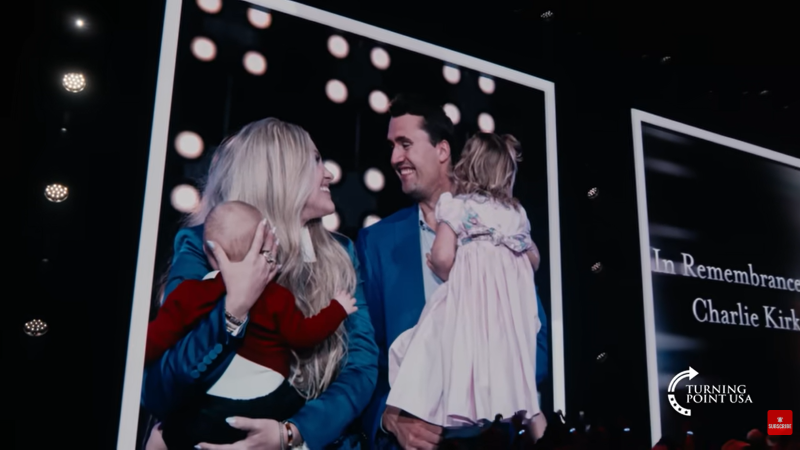Modern Paganism a Growing Threat to American Youth (Part 2)
Sign up for a six month free
trial of The Stand Magazine!
(The following is Part 2 of a two-part series, a very condensed version of Linda Harvey's book, Not My Child: Contemporary Paganism and the New Spirituality. Click HERE to read part 1.)
Now the Spirit expressly says that in latter times some will depart from the faith, giving heed to deceiving spirits and doctrines of demons (1 Timothy 4:1).
America’s youth are the most privileged, comfortable, and healthy generation in the history of humanity. Why in the world would something dark and pointless like sorcery appeal to them?
If we ascribe to the humanist principle that each person is fundamentally good, this at first makes no sense. With opportunity, money and physical security, all the potential in each person should be free to develop to its maximum, and adventures into the spooky and weird just shouldn’t be an issue. There would be too much fulfillment with the material world to be tempted by the murkiness of the supernatural.
But wait! What if a “nice” version of paganism and witchcraft was available, one that fits with our world’s apparent enlightenment and progress? It’s not “black” magic, but “white” witchcraft. It’s Glenda the Good Witch, not the Wicked Witch of the West. Surely, this couldn’t be harmful, and those who decry it are uninformed alarmists. Right?
There is a problem. The biblical view of humans depicts us as creatures who, without God, will always drift or race toward self-destruction, especially when destruction looks like paradise. From this view, the puzzle pieces form a very different picture. As America becomes increasingly paganized and stripped of Christian underpinnings, the essence of what can make one content is changing also. Without the taming and softening effect of the Gospel, humans descend into mindless self- indulgence, even savagery. The teens of Columbine, Jonesboro, Paducah, Sandy Hook and Parkland weren’t desperate inner-city street kids, but middle-class students from small towns or suburbs. What would make comfortable American kids murder fellow classmates?
The heart of a beast is already standard equipment in our offspring. Ask parents who are honest and they will admit that toddlers naturally show a viciousness and defiance that cries out for discipline. Kindness and sacrifice do not come naturally to them or to us adults, and are virtues that must be learned. So predictably, if we begin to tell children that they are their own authorities, they will readily embrace this vision and act accordingly. The supervision of parents or teachers, the authority of the state, and finally the boundaries of God will all be put to the test as each attempts to become his/her own “god.”
The Purchase of Power
Like most other areas of life, money buys freedom. Our emancipated kids, first and foremost, have cash and know how to spend it. American teens spend around $159 billion a year. Most teens and many pre-teens have their own smart phones. This creates a whole world of influences that are increasingly beyond parental control. The publishing industry’s preoccupation with the occult in young adult titles, for example, instead of earlier teen themes of sports, pets and dating, are driven by a market that is no longer totally accountable to Christian parents. It is responsive first to youth themselves and their interest in the sensational, and second, to the current parental majority which seems to be willing to trust marketplace values, failing to demand that the marketplace adhere to traditional ideals.
Some parents are alarmed at the new level of freedom for their offspring, but don’t know what to do about it. Others aren’t that concerned, having been indoctrinated to believe humans will gravitate toward what is positive if given an array of options. Creativity and spontaneity are valued above hard work, guidance from authorities, and discipline over one’s shadier impulses. So, letting a child’s eye roam the culture is accepted as “safe,” and constant vigilance and screening is to be avoided because they connote “censorship.” Only the ignorant, unenlightened and fearful stoop to such methods.
So it’s no wonder that many families today, having built their parenting upon this erroneous foundation, collapse in confusion at the inevitable child-rearing crises. How does one fix the child who won’t listen, insists on his own way, will only behave when entertained every minute, and is unhappy unless granted the trendiest toy, game, book or fashion? Children are not best aided by unsupervised exploration, but by parents who assume there are bad things out there, and that children will be tempted by them and can be harmed by them.
In addition, just the constant act of acquiring develops in kids a habit of greed and self-indulgence as well, not to mention the potential for abuse. One doesn’t need to take care of or cherish anything if there’s always a replacement toy or a more current electronic gadget available tomorrow. That goes for relationships and people, too, who begin to be seen as disposable.
So how can we encourage in children noble virtues, those that not coincidentally arise from the work of the Holy Spirit in one’s life? As described in Galatians 5:22-23, the fruits of the Spirit are “love, joy, peace, long-suffering, kindness, goodness, faithfulness, gentleness, self-control.” But pagan ethics lead us directly away from these qualities, encouraging children to pursue their immediate desires, i.e., to read, buy, listen to, watch, and experience as much as possible, no matter how outlandish.
Schooled in Fantasy
How have such ideas taken hold in our schools? Fantasy now dominates most popular youth fiction, TV shows, computer games and movies, so it’s no wonder the schools have jumped on board.
Part of the appeal is one of reconstructing reality. If you aren’t living out all your desires, all you have to do is envision a different situation. Hollywood dreams can change Anytown, USA. It might be one reason why Halloween with its costumes and carnival is emerging as our most popular holiday, right behind Christmas. It may also be no accident that Halloween—or Samhain, as witches call it— is the most important annual pagan celebration.
The American social preoccupation with illusion and make-believe brings up serious questions. There is no known precedent of a culture in history where the populace spent a major portion of its time immersed in the imaginary. Yet when one adds up the time most Americans spend in front of a television show, movie, or at an Internet site, it totals about 20–40% of our available waking hours. Much of the content is fiction. Throw in our consumption of novels and it means we are living lives where fantasy is a major player.
As adults this certainly has an impact, but one can only speculate what this does to the developing minds and characters of our children. Might one of the results be a decreasing ability to recognize truth, or even to want it?
U.S. education has wholeheartedly embraced the philosophy that the best story wins. Facts and data are increasingly irrelevant. From the whole-language reading method to advocacy-group versions of history, children embrace the imaginary as truth, including their own reflections. Biological and physical science instruction has been transformed by narrow, politically correct notions of environmentalism, with its population control/climate change subtext and gloom and doom projections for a revered “Mother Earth.” We’ll explore this in more detail below.
Literature selections are frequently thinly disguised propaganda as students read stories with an “agenda” that showcase minorities, variant gender roles, deviant behavior, and non-Western spirituality. Much of school-endorsed fiction is composed of graphic stream of consciousness ramblings that seem more like the author’s therapy than anything else. And composition exercises from elementary school onward continue the focus on self with a heavy emphasis on journaling. Personal opinion is valued over objective discovery. Journaling may assist writing skills, but often students are given no constructive feedback about content. Virtually every thought and feeling instead is validated.
History classes now dwell disproportionately on oppression, real or imagined, of special interest groups; or their subjective utopian dreams: what should be or should have been, from the viewpoint of women, Native Americans, or minorities. While some of this is valid, it often serves another purpose: that of spotlighting for special antagonism Western, Christian leadership and values. Our founding fathers are less often heroes to emulate, but instead come off as hypocritical buffoons. The most important “fact” many students learn about Thomas Jefferson is that he supposedly hid a sexual relationship with a slave woman.
Re-Imagining Western Civilization
Key historic incidents are now added or dropped as political correctness reigns. Recently, schools in Britain dropped teaching about the Holocaust and about the Crusades because of offense to Islamic students. In the United States, an increasingly disproportionate amount of class time is spent on subjects that distort history. The 1692 Salem witch trials in Massachusetts are a prime example.
While studying early American history, today’s grade school student will likely read Tituba of Salem Village by Ann Petry, about the Caribbean slave girl implicated in the mayhem in Salem. For many students, a unit on Salem will appear again in middle school. Then in high school, Salem will likely be the focus once more as students read or perform Arthur Miller’s play, The Crucible.
Virtually all the material used contains withering portrayals of Christian “fundamentalists” who might dare to believe that Satan exists. The accusers are depicted as irrational, ignorant hypocrites with their own twisted agendas. Tituba and the young Salem girls are often positioned as unwitting victims of bigoted community values that repressed their natural creative gifts and thirst for knowledge.
The takeaway for students is that they have much more to fear from biblical Christianity than from fortune-telling and sorcery, when the reality of the Salem episode is a much more complex illustration of exactly the subject of this book. Satan will use any human weakness to create confusion, to destroy hope in Christ, and to foment dissension, even among believers.
(Editor's Note: Click HERE to continue reading this article on the Mission America website.)

Sign up for a free six-month trial of
The Stand Magazine!
Sign up for free to receive notable blogs delivered to your email weekly.



















